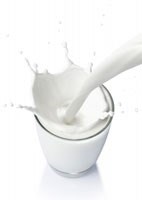
Top stories

Marketing & MediaWarner Bros. was “nice to have” but not at any price, says Netflix
Karabo Ledwaba 11 hours




Logistics & TransportMaersk reroutes sailings around Africa amid Red Sea constraints
Louise Rasmussen 4 hours

More news



















Milk Producers' Organisation chairman Tom Turner says the 226m litres (Ml) of milk produced in SA in January was almost 3% lower than last year and the lowest since 2010. February production of 199Ml was more than 4% lower than the corresponding month last year.
And Turner says the demand for dairy products in SA is growing at more than 4%/year. He says SA is experiencing "regional" milk shortages in parts of the country. "In past years our costs have risen by almost a third as a result of high international commodity prices, a weakening rand and above-inflation increases in administered costs such as electricity, diesel and labour."
He says labour costs are significant in the light of the recent hike in minimum wages because dairy farms do not employ seasonal workers.
"We require a more structured workplace with more specialised employees and we have always paid above-average wages for the agriculture sector."
Milk processor Clover - the biggest buyer of milk produced in SA, taking about 28% of production - recently increased payments to dairy farmers by 15c/l but Turner insists that farmers need much more to stay afloat. "Dairy farmers on average are getting R3,65/l but we should be getting at least R4,20/l Even then our margins would be tight."
He points out that the 2180 dairy farming operations in SA - down from 7000 a decade ago - are "unprotected from subsidised imported product and are not supported or subsidised by the SA government in any way".
SA is still a net exporter of dairy products, by the milk equivalent of 135Ml last year. But Turner says the imports of 284Ml (almost 11% of local production) undermine local market value, create price volatility and export local jobs to countries that pay farmers, processors and exporters subsidies and incentives.
"SA is capable of being self-sufficient in dairy product," he says.
Clover deputy CEO Manie Roode confirms that the company increased payments to farmers by "an average of 15c/l depending on the region". He accepts that "producers are under pressure from inflation and the new minimum wages".
"But farmers always want more. As processors we assess the amounts we pay farmers on a monthly basis to ensure sustainability of supply but we have to take cognisance of the consumer too.
"We are always concerned about milk flow but we do not believe there are shortages. We think there is a lot of stock in the market. The sustainability of the milk flow is in line with seasonality."
Reports from other milk-producing countries reveal similar issues to those unfolding in SA.
The Australian Bureau of Agricultural & Resource Economics & Sciences has forecast a 2% increase in global dairy prices this year - after two years of sharp decreases in prices paid to the country's dairy farmers.
"The price rise is due to the increasing global demand for dairy products. It is driven largely by consumers in developing countries, particularly in Asia," bureau economist Trish Gleeson says.
In the UK, protests by dairy farmers last year over low prices paid to them took the form of blockades of milk depots with tractors. It has led to milk prices rising to record highs this month as leading processors announce big increases in their payments to farmers.
Even though welcoming the increases, a spokesman for the UK's National Farmers' Union said milk producers would remain under pressure in the months ahead.
Source: Financial Mail

For more than two decades, I-Net Bridge has been one of South Africa’s preferred electronic providers of innovative solutions, data of the highest calibre, reliable platforms and excellent supporting systems. Our products include workstations, web applications and data feeds packaged with in-depth news and powerful analytical tools empowering clients to make meaningful decisions.
We pride ourselves on our wide variety of in-house skills, encompassing multiple platforms and applications. These skills enable us to not only function as a first class facility, but also design, implement and support all our client needs at a level that confirms I-Net Bridge a leader in its field.
Go to: http://www.inet.co.za